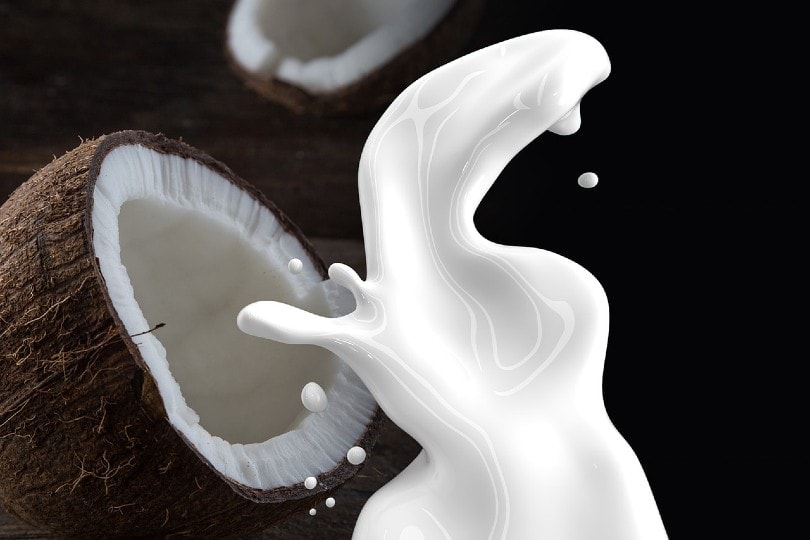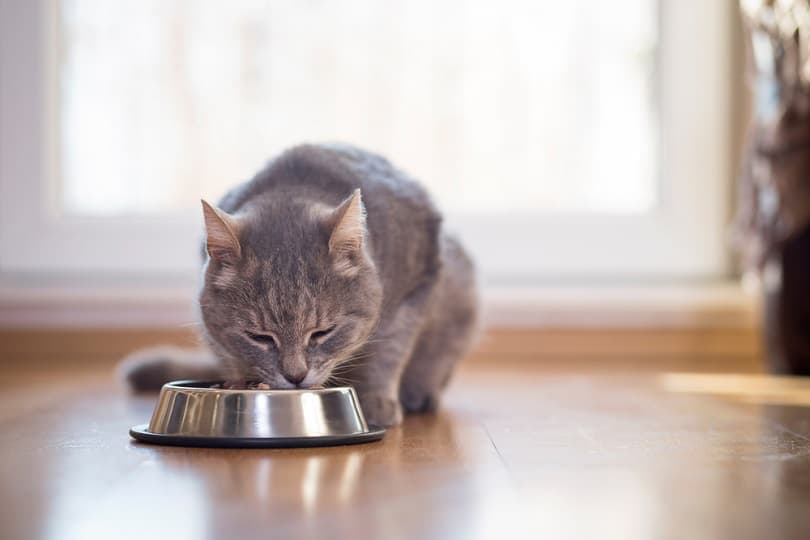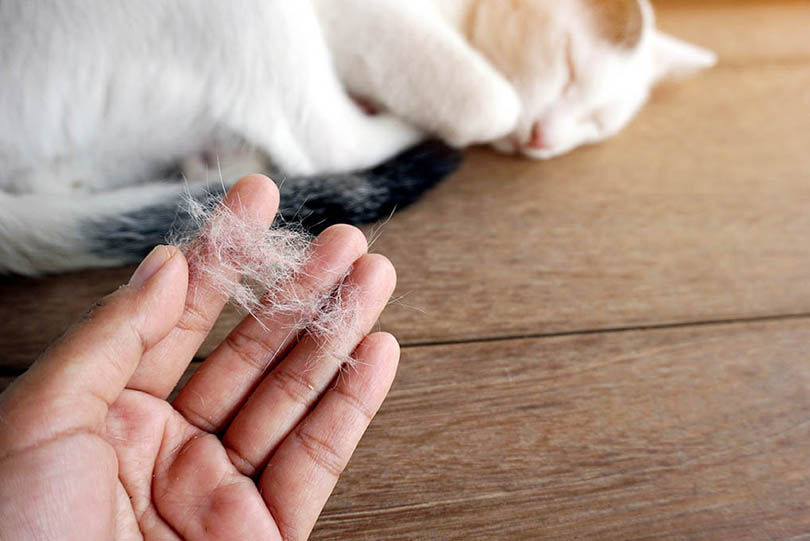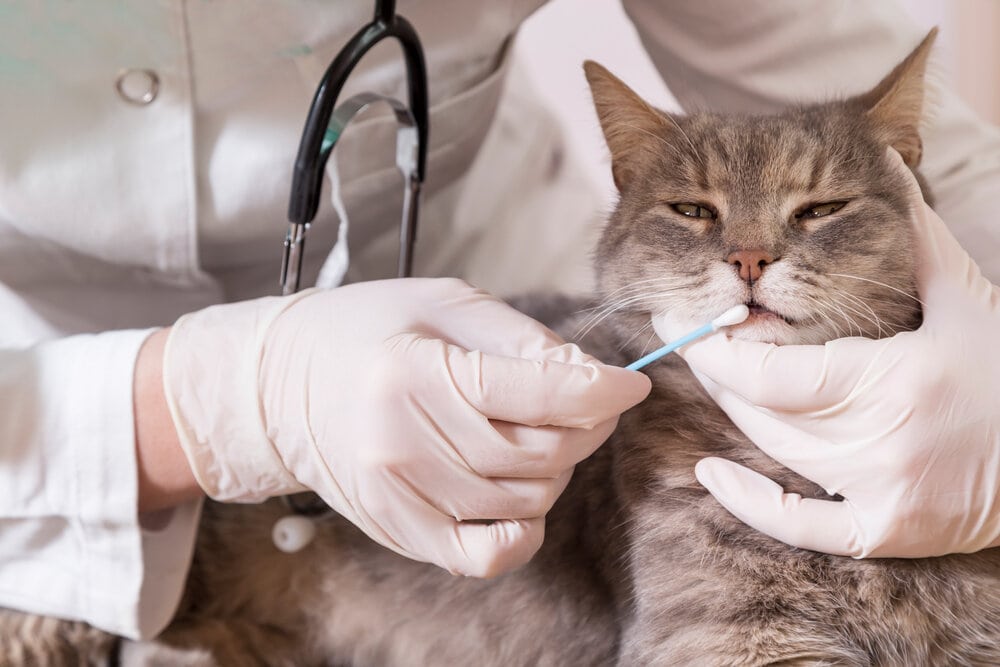Can Cats Drink Coconut Milk? Vet Approved Facts & FAQs
Updated on

In the beverage world, it seems everything is about healthy coconut these days. We’ve all heard about the health benefits of coconut water, coconut oil, and of course, coconut milk.
When it comes to our cats, we commonly associate them with lapping up a saucer of cream or milk, but what about coconut milk? Is that a safe and healthy treat for our cats since dairy milk is not?
Can cats drink coconut milk? Is coconut milk safe for cats? While coconut milk is technically non-toxic for cats, we don’t advise offering it to them. We’ll discuss our reasoning below so you can make an informed decision.
Before changing your cat’s diet or introducing new ingredients or supplements that they haven’t eaten before, especially when it comes to human food, make sure to consult your veterinarian first. Every cat is different and requires an individual approach to nutrition, depending on their age, health, level of activity, and medical history. The guidelines offered in our article have been fact-checked and approved by a veterinarian but should be used as a mere guide on food safety, rather than an individual nutrition plan.
All About Coconut Milk

Most of us already know that coconuts grow on coconut trees in tropical locations and are traditionally used in Southeast Asian and Thai cuisines.
Coconuts contain water and coconut meat, and it’s interesting to note that coconut milk does not occur naturally inside the coconut. When coconuts are immature, they are green in color, which is when coconut water is extracted.
When coconuts mature and turn brown, the flesh of the coconut is combined with water, which is what gives us coconut milk (which contains about 50% of water).
Coconut milk that has a thick consistency is made by finely grating the coconut meat and boiling it in water. This mixture is then placed in cheesecloth and strained for thick coconut milk.
For thinner coconut milk, the coconut meat that is still in the cheesecloth that produced the thick milk is boiled again and strained to create a more diluted version.
The Negative Side of Coconut Milk

We know coconuts are healthy but do they have a downside?
Generally speaking, you should be careful about what kind of canned coconut milk you purchase. Some cans have the chemical bisphenol A (BPA), which can filter into the canned contents. Studies have shown that BPA can cause cancer and reproductive issues in both animals and humans.
Lastly, experts recommend limiting the amount of coconut milk you ingest if you have any FODMAP sensitivity.
The bottom line is, if you have sensitivities to coconut or its ingredients, it’s best to avoid it. Also, double-check the kind of coconut milk you buy to ensure it is BPA-free.
And now on to cats. Why exactly should we not give our cats coconut milk if it has so many benefits for us?
A Cat’s Diet
Before tackling why coconut milk is not good for cats, we will have a brief look at what kind of diet the average cat eats.
Cats fall into the obligate carnivore category, which means that they will only thrive on a meat-based diet. In fact, the cat’s digestive system is designed to only process meat and cannot handle plant material.
Other than when kittens drink their mother’s milk, cats are actually lactose intolerant and can experience digestive upset (usually diarrhea) if you give your cat a drink of cow’s milk. But what about coconut? Does it count as milk or a plant or maybe a fruit?

Coconut Milk and Cats
Just like with plants, cats don’t have the proper enzymes for properly digesting coconut milk. This means coconut milk could make your cat ill. There are also extra oils and fats in coconuts, which could lead to weight gain if your cat regularly ingests coconut milk.
Additionally, if coconut milk has any added sugar, this is an added ingredient that can only create health issues for cats. Weight gain, and other health problems can arise if you repeatedly give your cat anything with added sugar.
Possible Side Effects
So, we’ve established that coconut milk is probably something you should avoid giving your cat.
These signs are also just an immediate reaction that could happen if your cat drinks a little coconut milk.
These symptoms are also just an immediate reaction that could happen if your cat drinks a little coconut milk.
These conditions may happen if your cat is routinely given food that is not a normal part of her diet. If your cat exhibits any signs or signs of the above list, please bring them to your vet as soon as possible. The long and the short of it is that while coconut milk isn’t actually toxic for cats, it definitely doesn’t do them any favors either. Coconuts almost defy a definition. They’re kind of a nut, sort of a seed, and somewhat a fruit. But what they definitely are is meant for human consumption and not your cat’s. Be sure to have fresh and clean water always available for your cat. It’s a great idea to get your cat a water fountain as it helps to encourage a lot of drinking. If your cat drinks a little coconut milk, just keep an eye on them. Chances are, they’ll be just fine but speak to your vet if you’re considering adding something new to your cat’s diet. After all, all you want is for your cat to live a long and healthy life. Featured Image Credit: Elena Veselova, ShutterstockConclusion













